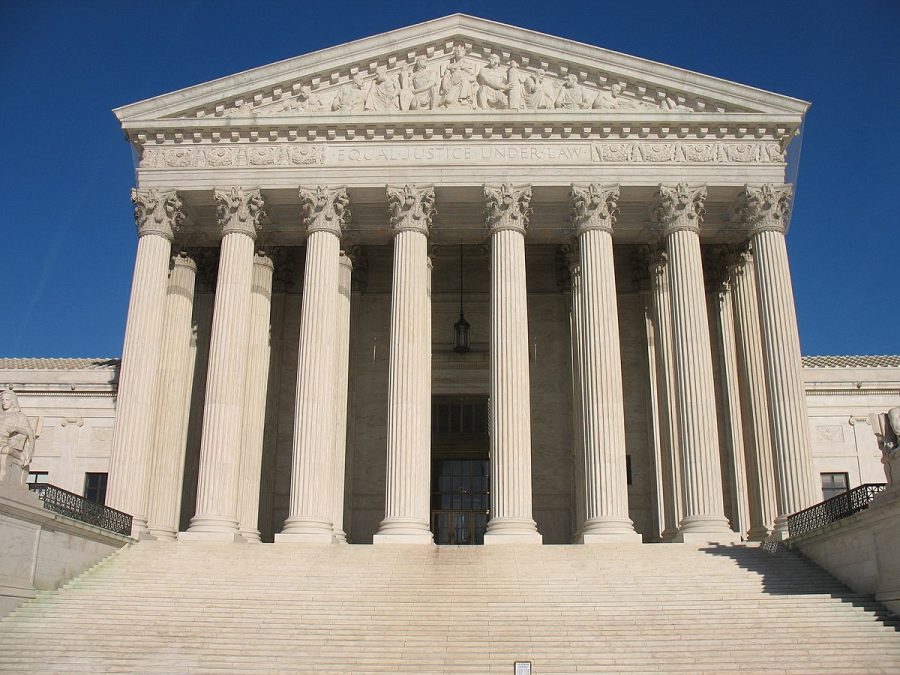Opinion: Overturning Roe v. Wade would have far-ranging effects
A draft of a ruling that would overturn Roe v. Wade has been leaked.
May 19, 2022
An unidentified source has leaked a Supreme Court draft opinion that would overturn the abortion ruling in Roe v. Wade. It might not seem apparent at first, but such a ruling also would place LGBTQ+ and low-income citizens at risk.
Medical and political professionals around the country are concerned about the future of reproductive rights in the United States. Dr. Kavita Arora, an OB-GYN in North Carolina, said such a ruling could eventually limit access to alternative kinds of contraception such as IUDs and Plan B.
“In changing the definition of when pregnancy starts to just at fertilization, it would compromise our ability to provide access to really highly effective methods of contraception,” Arora said.
According to a story in the New York Times, half of abortion patients live in poverty. If the court overturns Roe v. Wade, women in states where abortion is illegal would have to travel hundreds of miles for an abortion, which poorer people might not be able to afford due to high transportation costs.
A repeal also would strongly impact African Americans. According to the Pew Research Center, 56 percent of America’s Black population lives in the South, where conservative already are planning to outlaw abortion, and 19.5 percent of African Americans fall below the poverty line, which would make travel to states that allow abortion more difficult.
If Roe v. Wade is overturned, some people fear that same-sex marriage could end up at risk.
In the leaked draft, Justice Samuel Alito reasoned that Roe v. Wade was “situationally irrelevant” because the Constitution does not directly mention abortion. Alito made a point of writing that this argument would apply only to abortion, and would not apply to other issues.
But because the Constitution also does not cite a right to same-sex marriage, interracial marriage, and contraception, the draft ruling could open up a loophole if states choose to argue against them. In a Time magazine interview, Harvard professor Laurence Tribe shared his thoughts on how the decision impacts other cases.
“It’s absolutely clear that the Supreme Court’s decision – if it does emerge along the lines of the leaked opinion by Justice Alito – would…open the door to restrictions on birth control, same-sex marriage, sexual intimacy, and other forms of intimate personal decision-making,” Tribe said.
Another report by NBC News said that countries that restrict abortion have higher rates than those that do not. Abortion prohibition will not reduce the number of abortion procedures; it will reduce the number of safe abortions.
Abortion should not be a state-level decision; it should be a freedom every citizen in America has.



